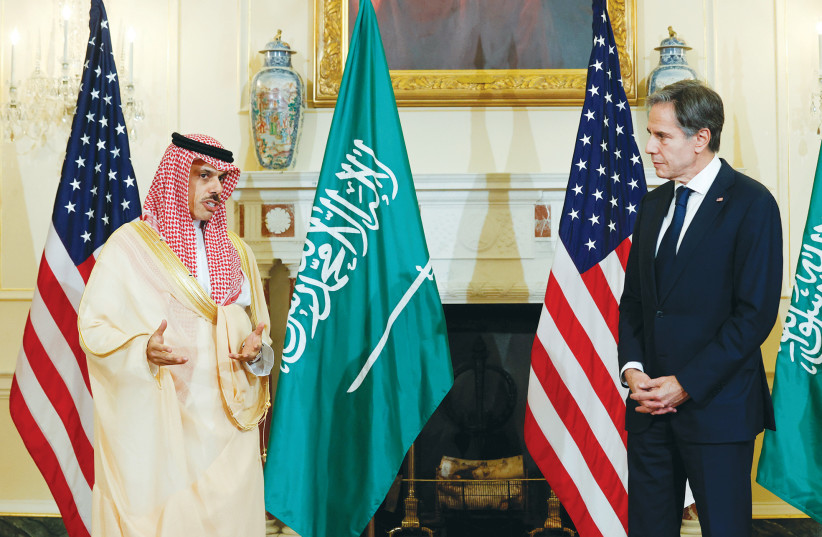The Palestinian Authority has expressed relief over Saudi Arabia’s assertion that the kingdom won’t normalize its ties with Israel without a Palestinian state, which came as Israel has repeatedly spoken of a possible deal with that Gulf State.
Palestinian Ministry of Foreign Affairs said it “welcomed the sincere positions of the Kingdom of Saudi Arabia towards our people and their issues.”
Saudi Foreign Minister Prince Faisal bin Farhan Al-Saud underscored his country's support for the Palestinian people when he spoke at the World Economic Forum in Davos last week and in an interview on the sidelines of that conference with Bloomberg television.
Prince Faisal told Bloomberg that “We have said consistently that we believe normalization with Israel is something that is very much in the interest of the region.”
The Saudi minister, however, said that “true normalization and true stability will only come through giving the Palestinians hope and dignity and that requires giving the Palestinians a state.”

"That is the priority. The priority needs to be bringing the Israelis and the Palestinians to the negotiating table in a way that proves a pathway to a Palestinian state with east Jerusalem as its capital," he said.
Most members of the new Israeli government that was sworn into power late last month are opposed to the creation of the Palestinian state. The United States has been the broker of the Israeli-Palestinian peace process, but the Biden administration has not spoken of relaunching talks.
The US and Israel have focused their efforts on strengthening the Abraham Accords, under whose auspices Israel normalized ties with four Arab states, United Arab Emirates, Bahrain, Morocco and Sudan.
They have also worked on an expanded operational mechanism called the Negev Forum, which includes Israel's oldest regional ally Egypt and possibly Jordan in the future.
The two countries are also looking to expand the Jewish state's list of regional allies, with Israel speaking specifically of Saudi Arabia.
Measures to deepen Abraham Accords
Last week US National Security Adviser Jake Sullivan visited Jerusalem and Ramallah, in advance of the anticipated arrival later this month of US Secretary of State Antony Blinken.
Sullivan discussed the Abraham Accords with Israeli officials. Prime Minister Benjamin Netanyahu said there was an "emphasis: in those talks emphasis "on a breakthrough with Saudi Arabia."
The Palestinians have condemned the Abraham Accords as a “stab in the back” and a violation of the 2002 Arab Peace Initiative, which states that the Arab countries would establish normal relations with Israel after the establishment of “a sovereign and independent Palestinian state on the Palestinian territories occupied since June 4, 1967.”
In the past, some Palestinian officials in Ramallah voiced concern over reports that Saudi Arabia and Israel were close to normalizing their relations. The officials, however, refrained from publicly criticizing the Saudi leadership after reportedly receiving assurances that Saudi King Salman bin Abdulaziz Al-Saud was opposed to such a move.
The Palestinian Foreign Ministry lauded Prince Faisal's words on behalf of their statehood aspirations. The ministry said it appreciated Saudi Arabia’s “support and assistance for the rights of our people in all forums under the leadership of His Majesty King Salman bin Abdulaziz Al-Saud and Crown Prince Mohammed bin Salman, including the support for the Palestinian people’s right to self-determination and the establishment of an independent state with East Jerusalem as its capital in accordance with resolutions of international legitimacy and the Arab Peace Initiative.”
